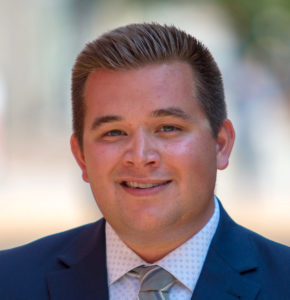


Zach joins the USGLC from a congressional campaign in Ohio, where he oversaw foreign policy for the communications team. Prior to his campaign work, Zach completed internships at the U.S. Department of Agriculture and The Chicago Council on Global Affairs, working on teams dedicated to global food and agriculture, Middle East policy, and government relations. As a student, Zach chaired the International Policy Program at the University of Chicago’s Institute of Politics, served as a Fellow in the Office of Undergraduate Admissions, and studied abroad in Vienna, Austria. He holds a bachelor’s degree in political science from the University of Chicago and is a proud native of Salem, Oregon.
As representatives from nearly 200 countries gather in New York for the United Nations General Assembly (UNGA), the development community will be watching closely to see where global development ranks in a world of competing priorities. This year, the Sustainable Development Goals (SDGs) – 17 ambitious targets UN member states have committed to reaching by 2030 – will take center stage more than once, giving SDG watchers plenty to look out for over the coming week.
Ambassador Kelly Craft, the nominee to succeed Nikki Haley as the U.S. Permanent Representative to the United Nations, recently appeared before the Senate Foreign Relations Committee, saying, “I believe that the United States must maintain its central leadership role at the United Nations… when the UN performs, it advances key American objectives including the promotion of peace and security.” As she awaits a confirmation vote, three questions remain about her vision for American leadership at the UN:
U.S. assistance to Central and Latin America – from Plan Colombia to the Alliance for Prosperity – has long focused on addressing the root causes of instability and migration through strategic investments that combat violence, provide safe spaces for youth, promote economic development, and fight corruption. Here are just 9 U.S. foreign assistance programs in Central America that are making a difference.
At the Heritage Foundation yesterday, National Security Advisor John Bolton introduced the Administration’s new Africa strategy, which he said reflects the president’s “central campaign promise” to put the interests of the American people first.
For every $1 we spend to prevent conflict and atrocities, we have the potential to save $16 in response costs, according to the Institute for Economics and Peace. And this week, in an effort to solidify state fragility as a national security priority, the House passed the Global Fragility and Violence Reduction Act of 2018. Now, we turn to the Senate to reframe America’s national security agenda and combat the threats posed by global fragility.
Get the latest news, advocacy, and event updates from the USGLC
Copyright 2024 USGLC | Privacy Policy
Notifications